Future-Proofing Congress: Imagining the Design of an Expanded House
Welcome to the latest edition of POPVOX Foundation’s “Future-Proofing Congress,” a monthly newsletter for busy Congressional staffers featuring tech tools, modernization updates, and professional development opportunities.
This month, we’re covering:
Our new report with Protect Democracy on an expanded and modern House,
The new House and Senate calendars and why the House needs proxy voting for Members on maternity, paternity, and bereavement leave,
Gearing up for the 119th Congress, and more!
My colleague Aubrey Wilson is still out on maternity leave (congrats again, Aubrey!), so I’m flying solo with the updates this month. As recovering staffers from both sides of the aisle, we know how hectic this time of year can be — juggling holiday preparations while gearing up for the transition to a new Congress in January. If there’s anything on your mind or updates you’d like to share, feel free to reach out. We’re here to help you navigate it all and start the new year strong!
Our virtual office will be closed next week through New Year’s Day, so we are wishing everyone a restful holiday season. We’ll see you in 2025.
Warmly,
Taylor J. Swift
Director of Government Capacity
Where Will They All Sit?
With several House expansion proposals floating around (we take no position on that), most Hill folks have a very practical question: “Where will they all sit?” We at POPVOX Foundation worked with Protect Democracy to find some answers. We interviewed Members, staffers, and other Congress-adjacent experts and worked with an architect to produce a vision of the Capitol Campus of tomorrow: a new House office building, a landbridge to Ford and O’Neill, an enclosed Rayburn Atrium, digital wayfinding, lots of coworking space, tons of light and greenspace, and SO much more! The report was featured by Roll Call, got lots of comments on social media, and we’d love to know what you think!
Browse the gallery:
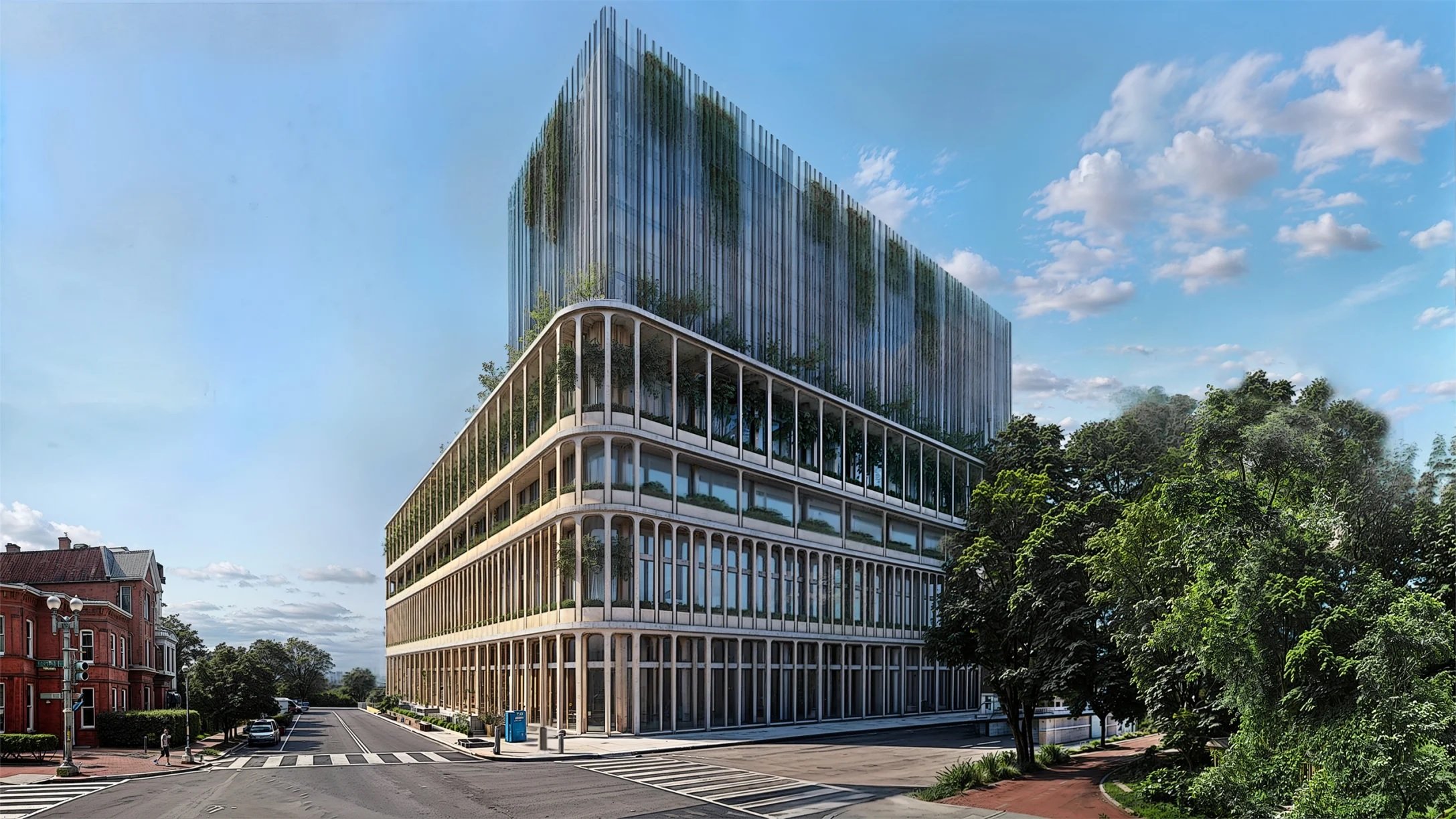
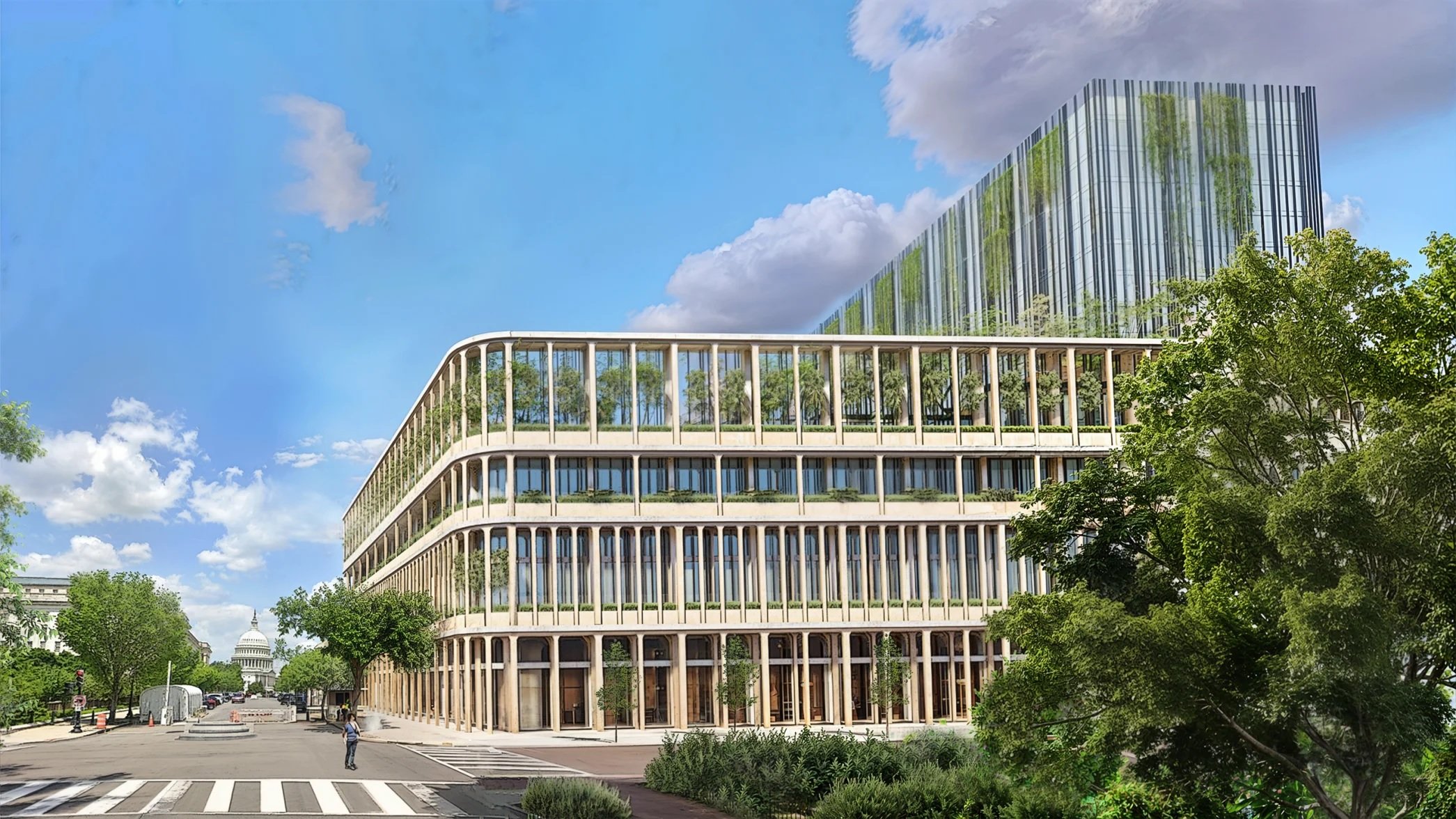


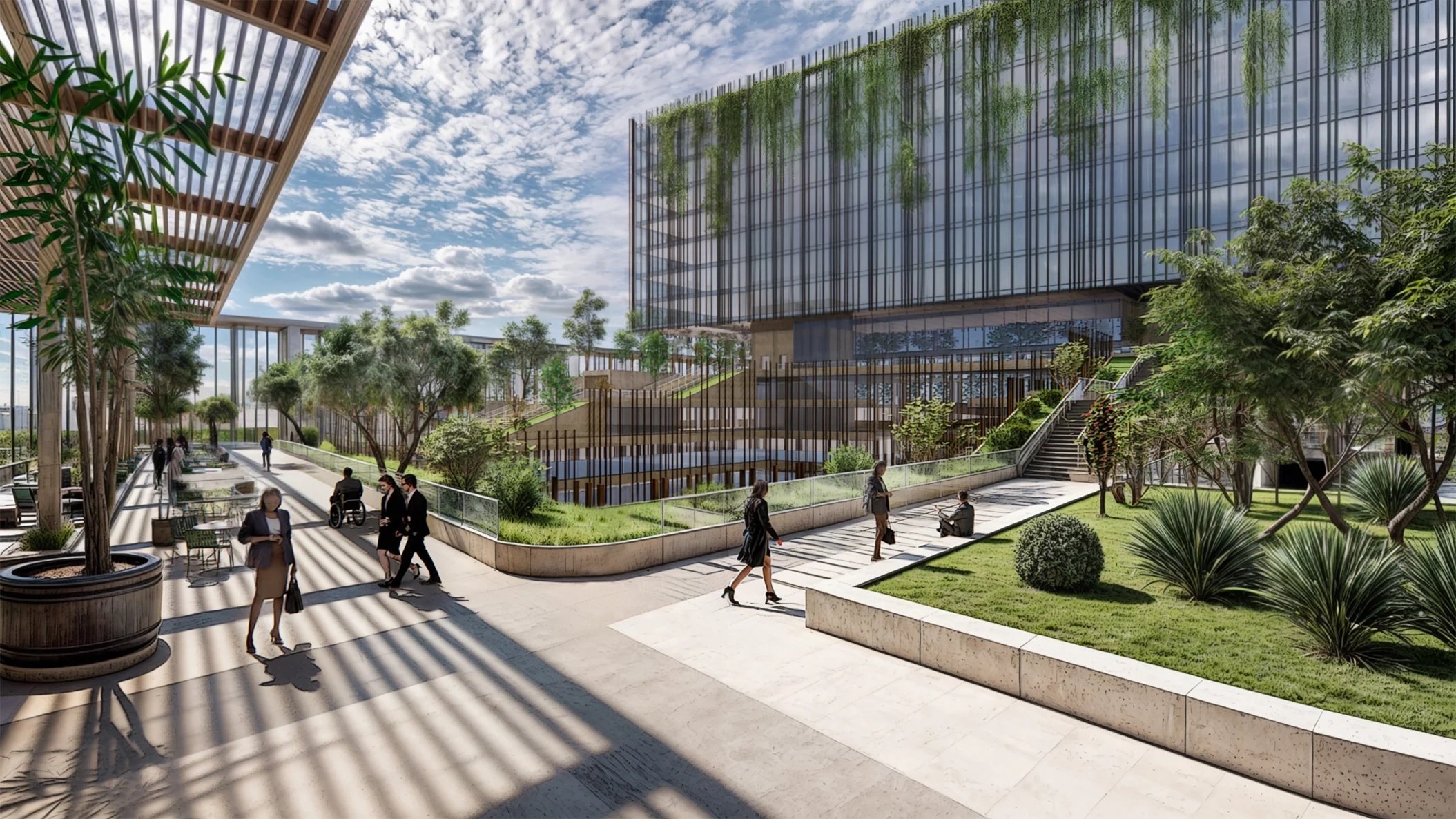

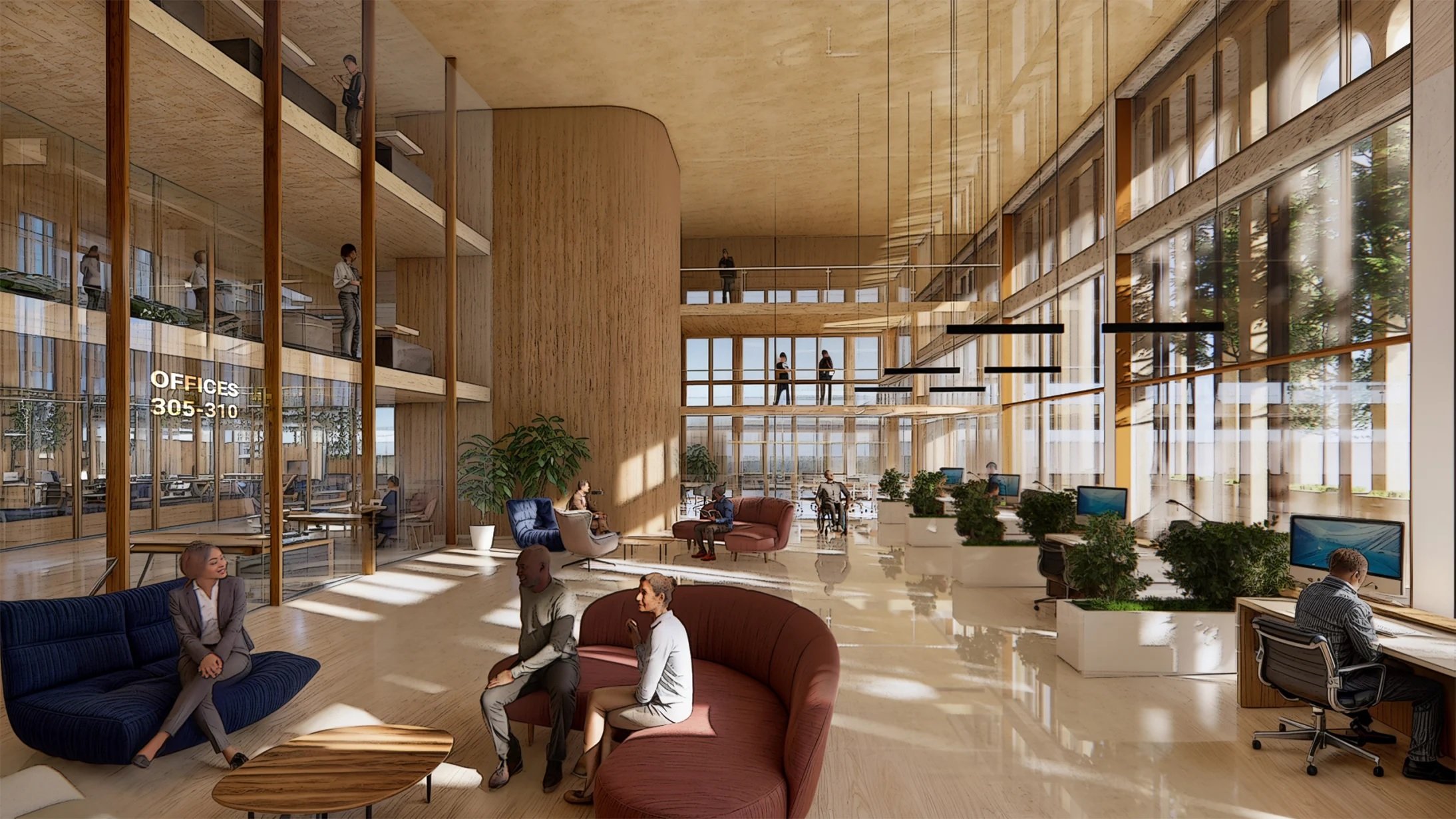
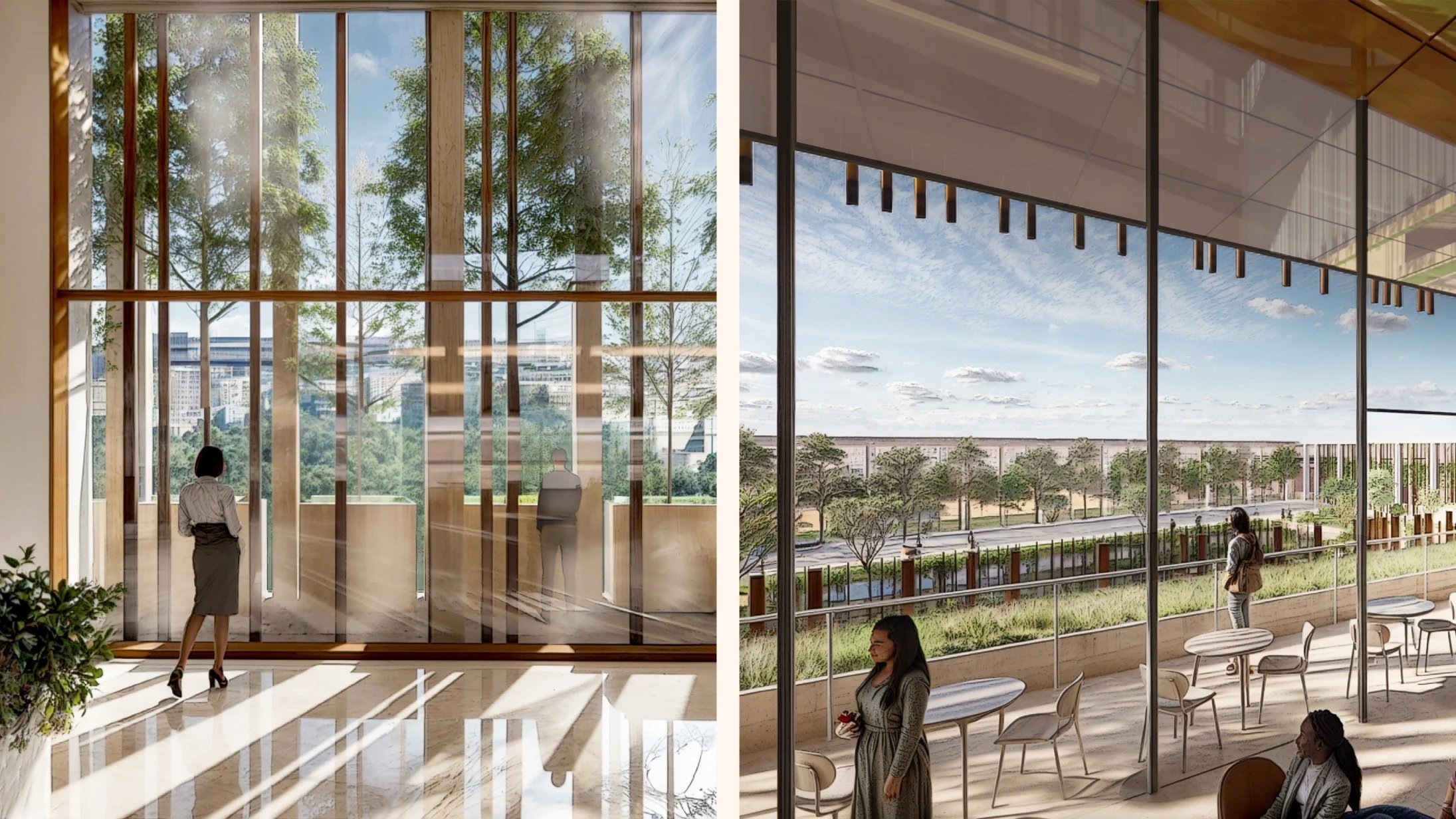
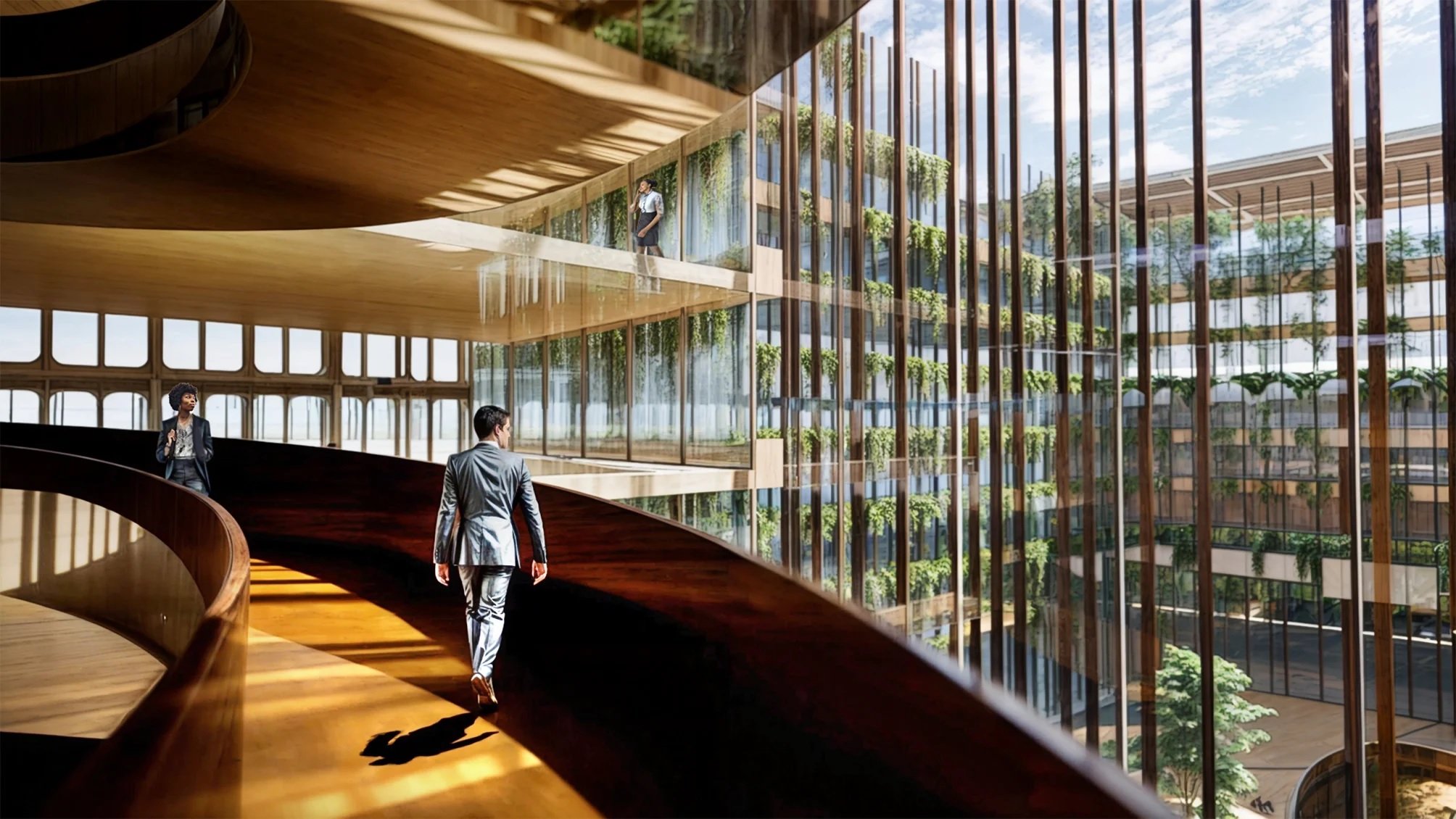
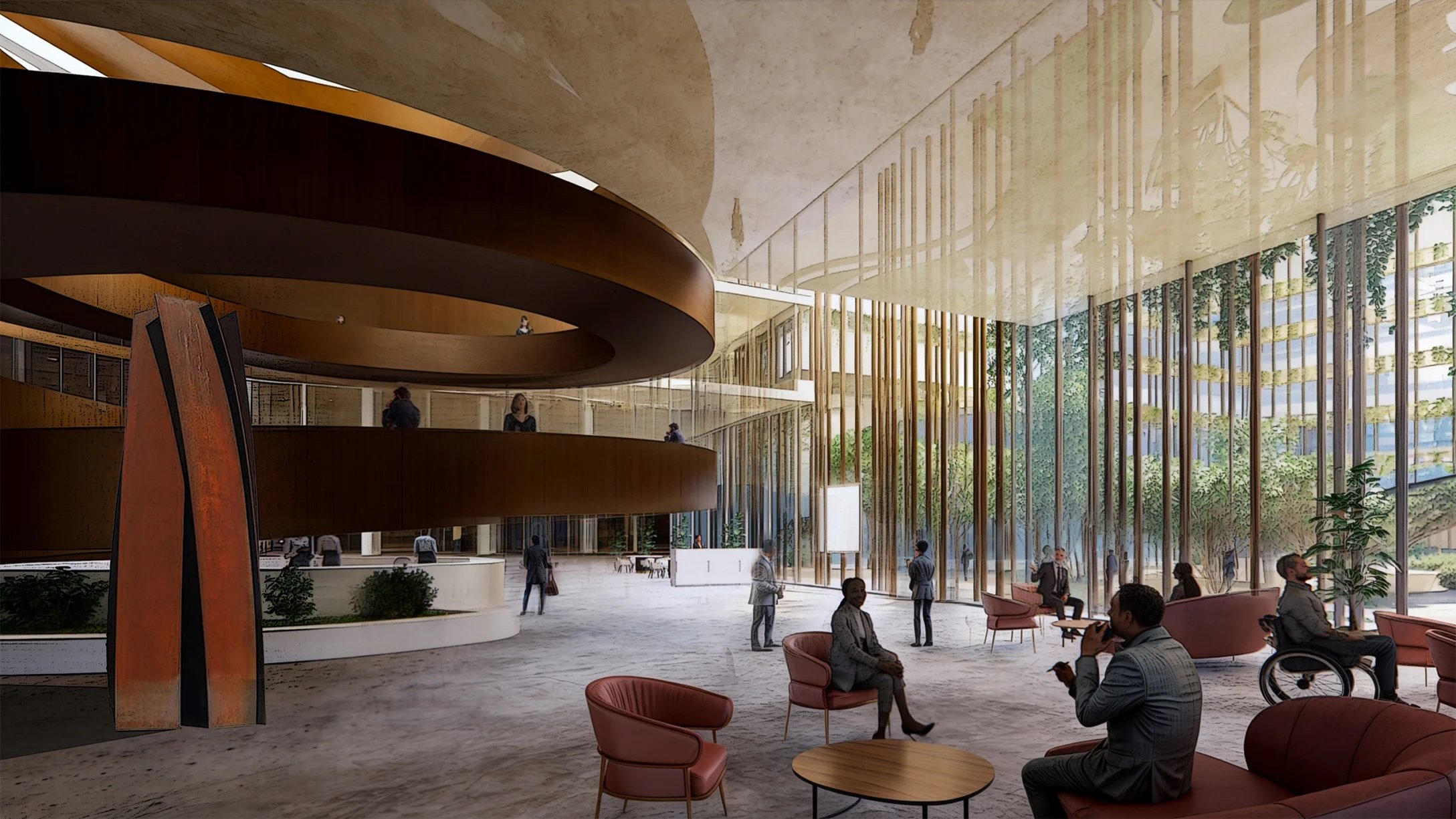

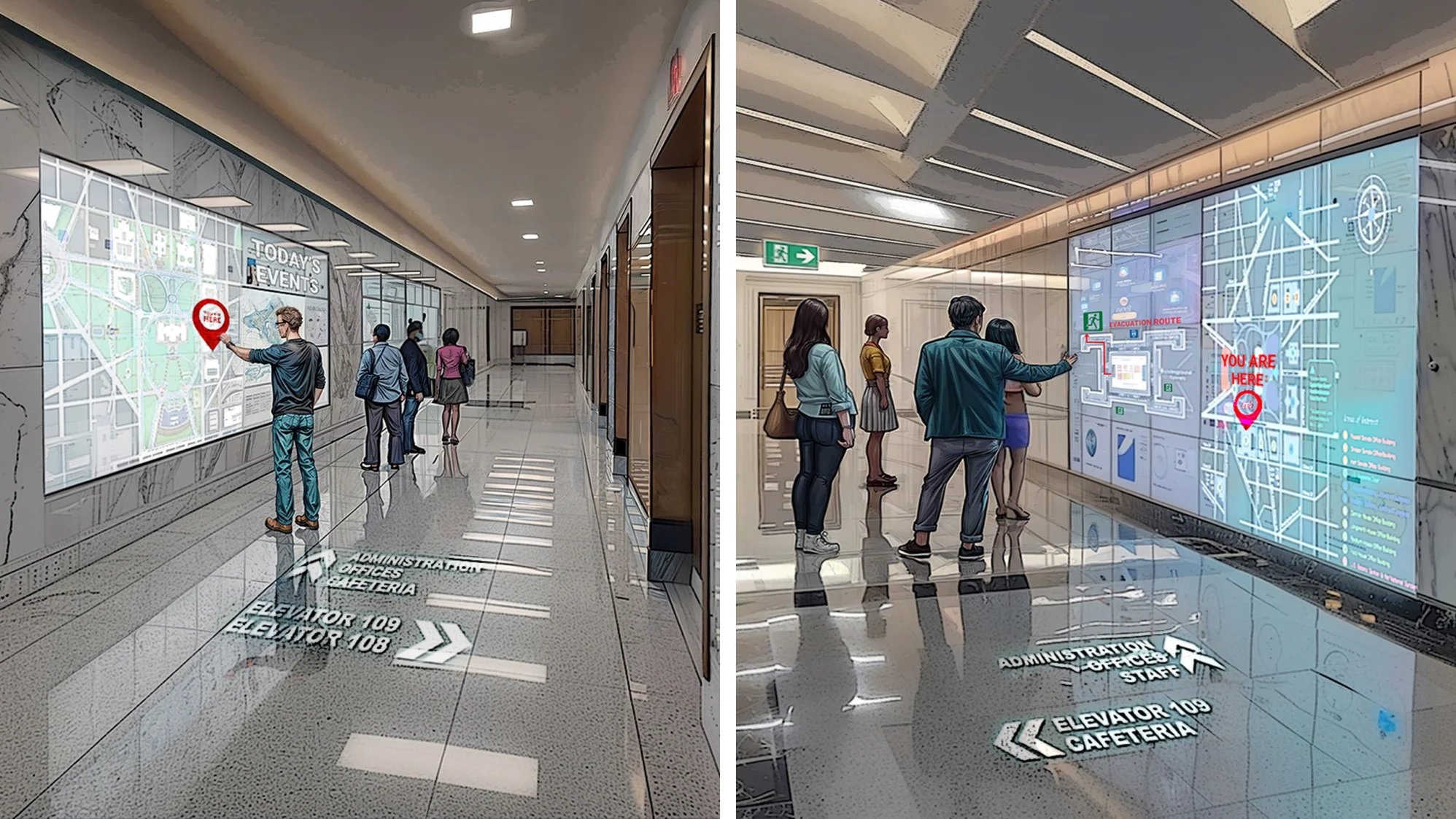

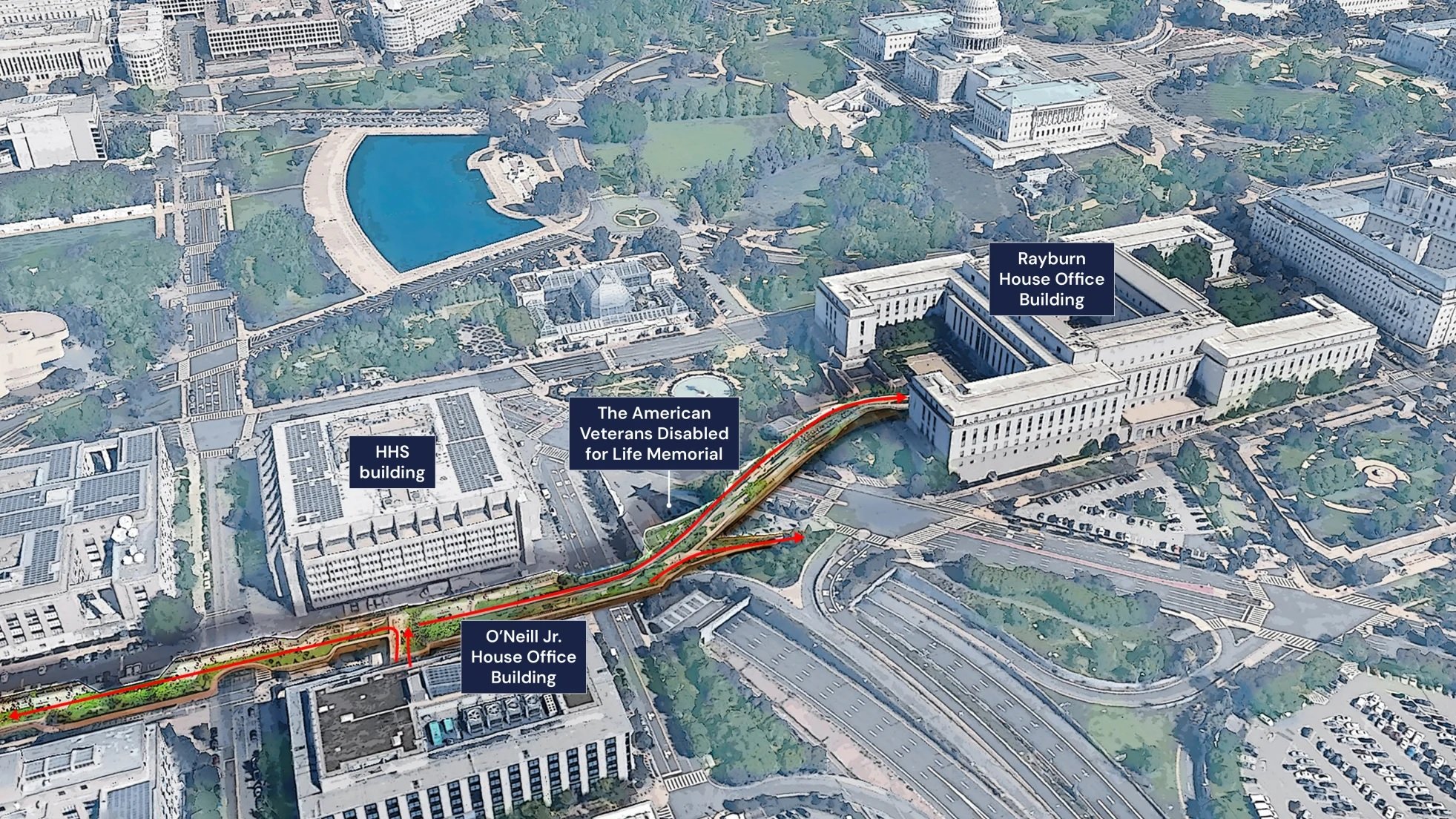
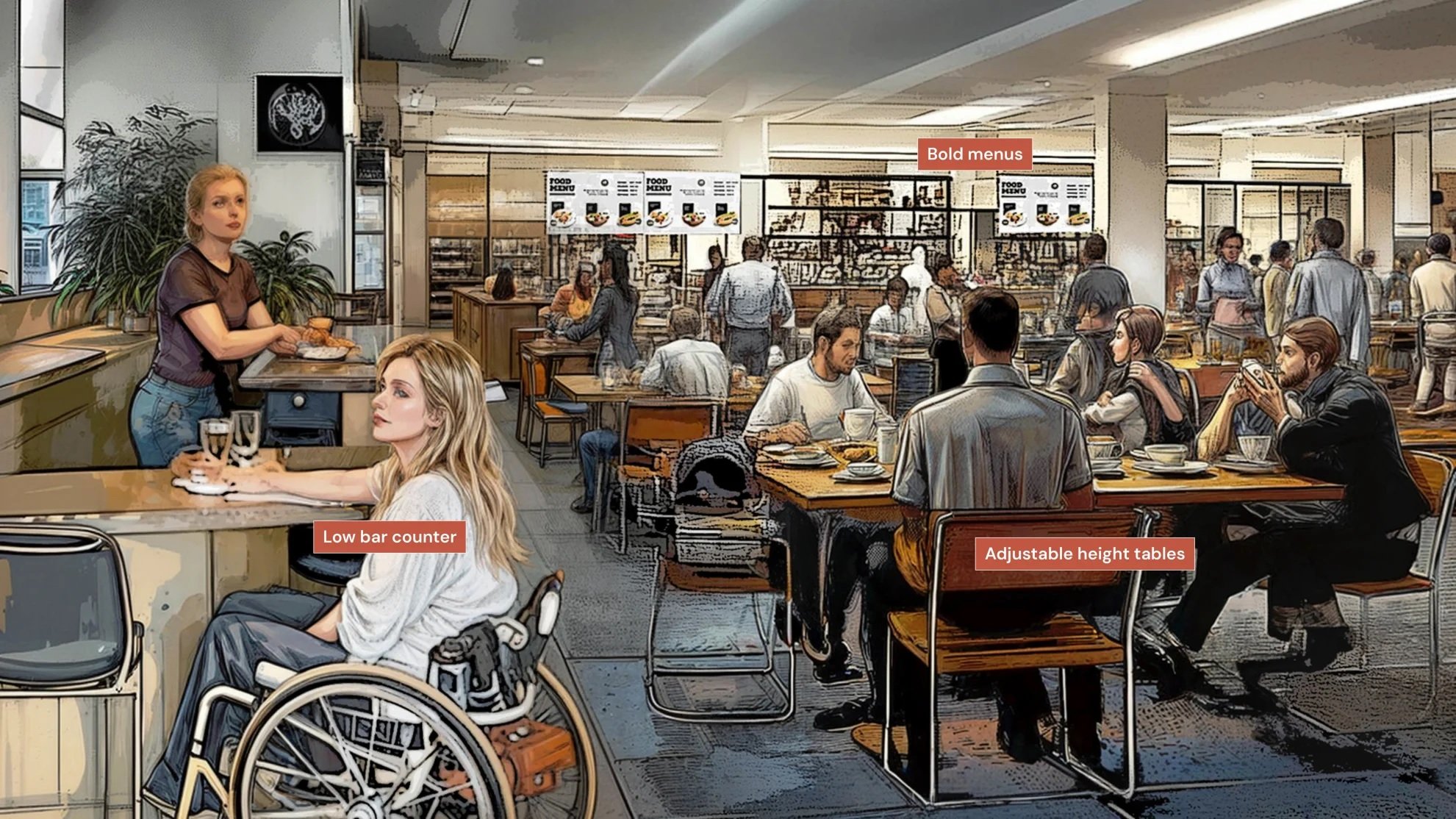


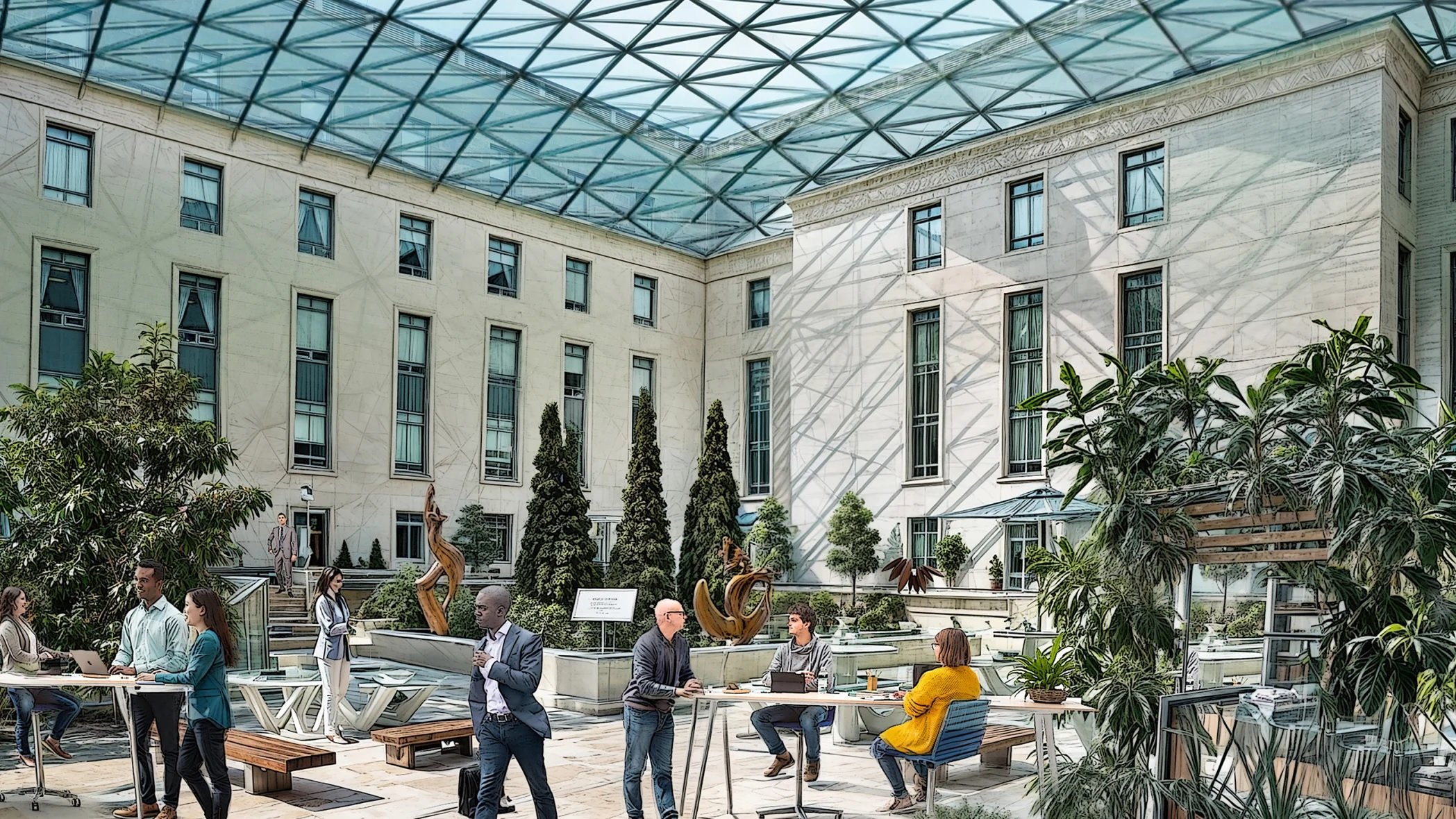


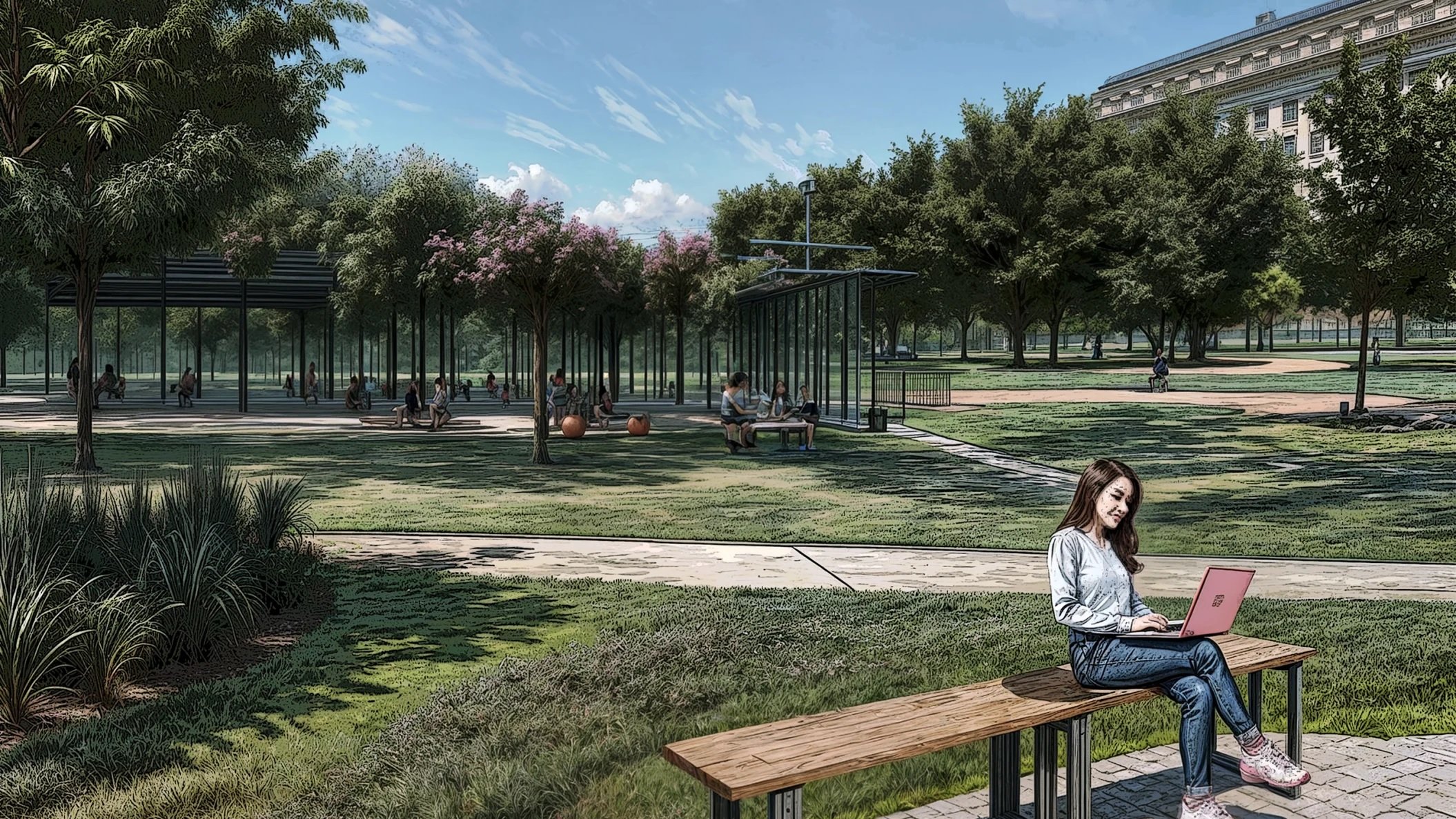
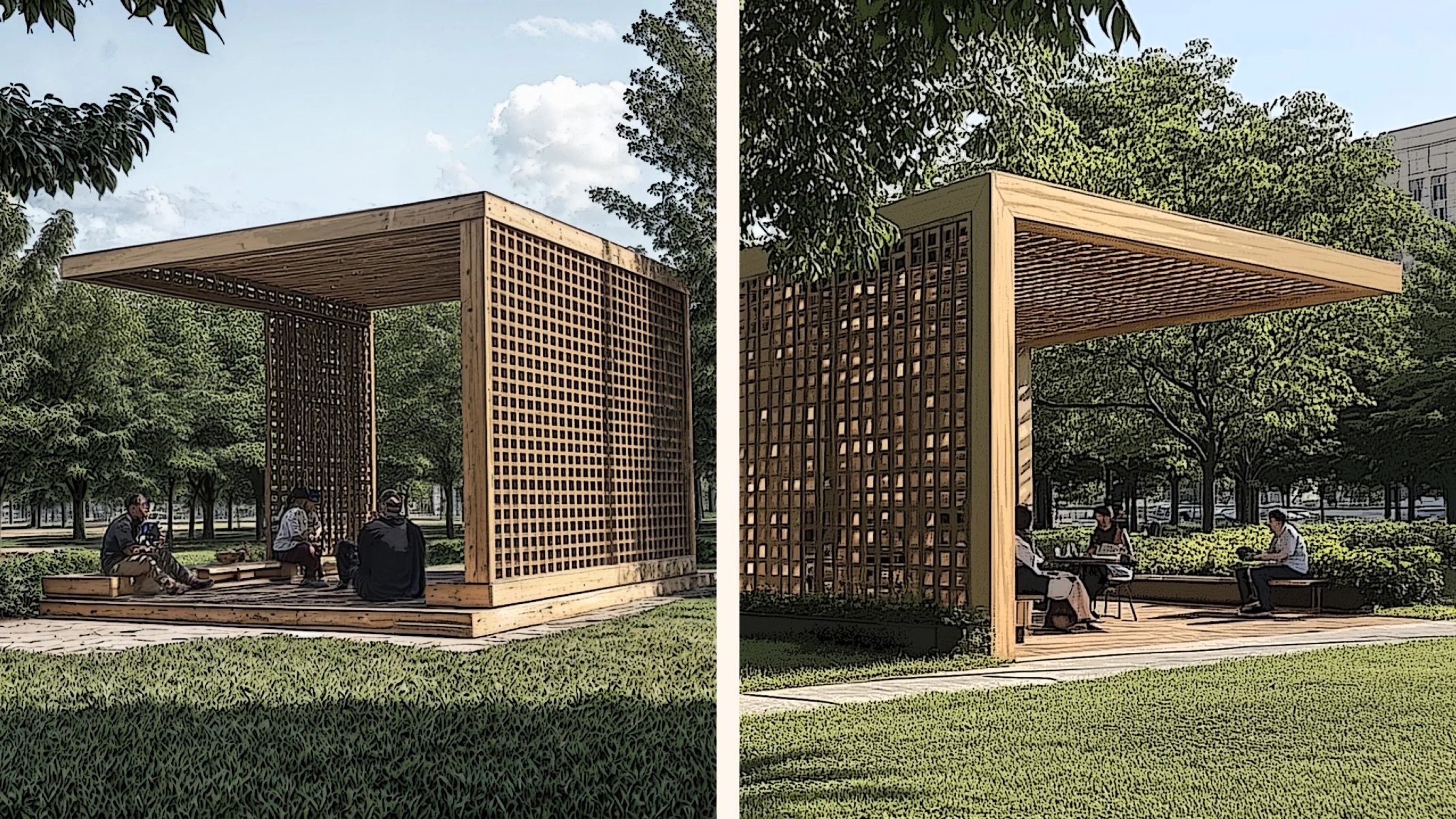
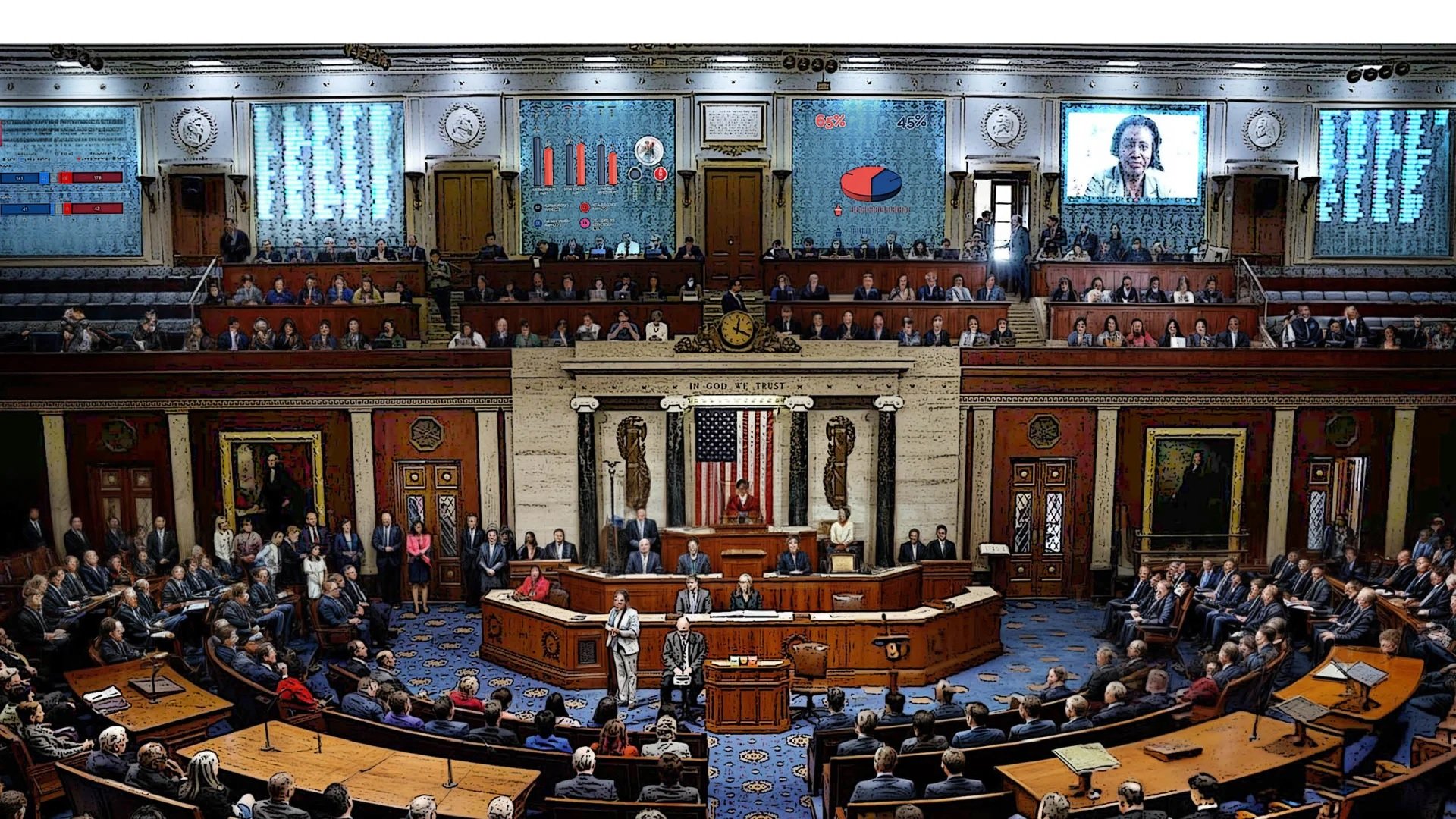
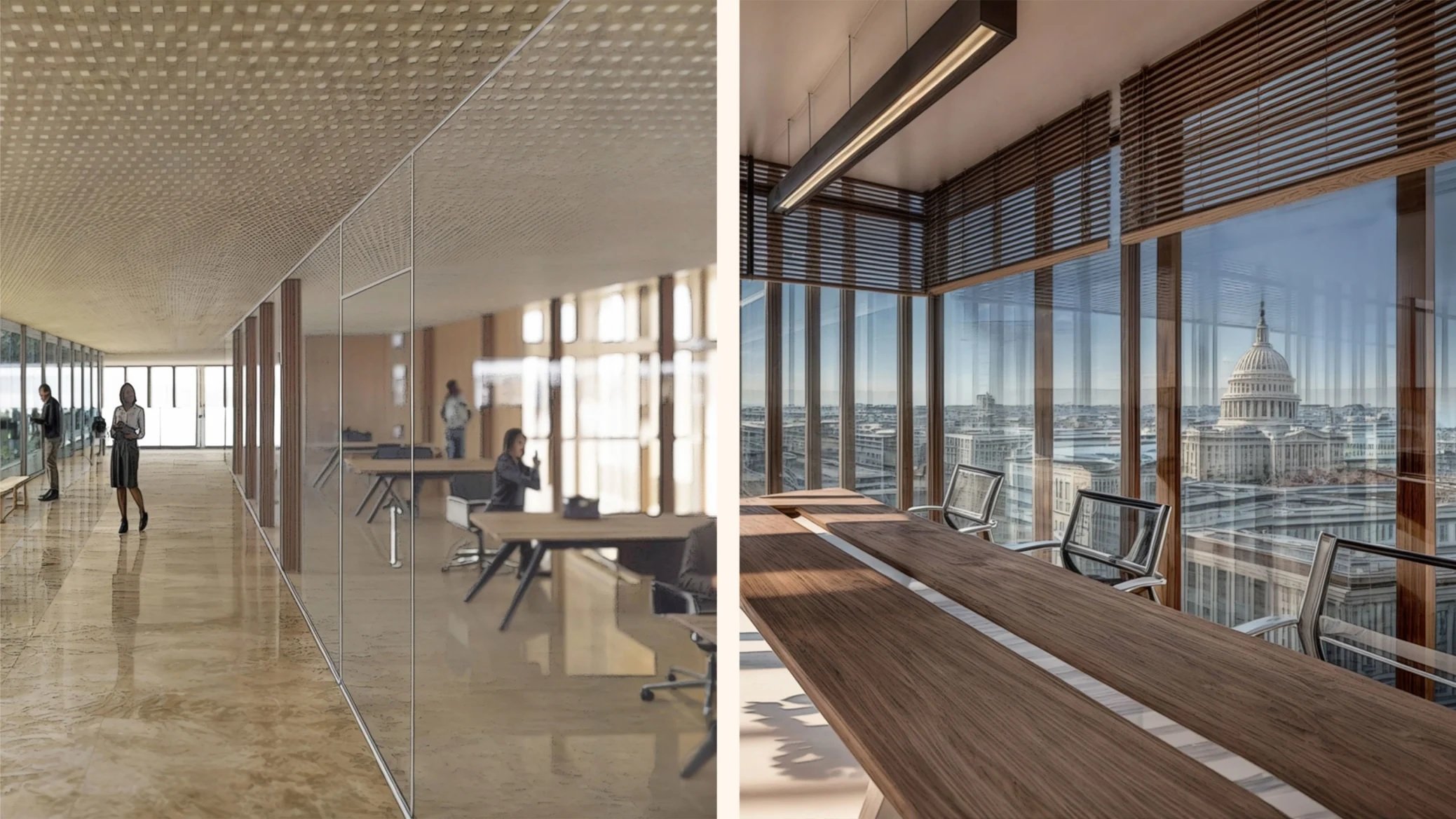
How GenAI is impacting Congressional Offices
POPVOX Foundation Deputy Director Anne Meeker interviewed staffers who handle constituent input to find out how much AI is currently impacting their work. And the answer is…not much. At least for now, most offices are not seeing a major uptick, though they and the vendors of CRM systems and advocacy tools expect more changes in the future. One area where AI has made its mark: AI-generated phone calls designed to provoke an emotional response. READ MORE
The Bipartisan House AI Task Force in the 118th Congress just released its final report, with a helpful nod toward upgrading legacy IT systems.
ICYMI: Bloomberg Law recently published a fun feature story on how some Hill offices are experimenting with AI. If your office has a great example to share, we’d love to amplify it. Email us!
Proxy Voting in the House?
In the 119th Congress, the House of Representatives could end up with its smallest majority in roughly 100 years. That means razor-thin vote margins are coming. My colleague Danielle Stewart and I make the case that the House should update its voting procedures to include a limited proxy voting option for maternity, paternity, and bereavement leave. This would ensure near-universal participation and better prepare Congress to respond to future emergencies, whether individual or national. This isn’t just about potential close margins, it’s also about being able to still represent constituents when life happens.
119th Congressional Calendars
House and Senate leadership released their 2025 Congressional calendars, with a lot more in-session days than the 118th Congress. The House still plans to have more travel days (69 days) than full work days (67 days), but three five-day work weeks are planned for 2025 (compared to zero in 2023 and 2024). Our friends at the Bipartisan Policy Center have published their own proposed calendar to help optimize travel and work days. Extra work days could mean more committee activities, scheduled with ease with some help from the committee Deconflict tool from House Digital Services.
Disaster Casework: Recommendations for Reform
A new report by POPVOX Foundation Deputy Director Anne Meeker highlights the vital role Congressional offices and caseworkers play after disasters. Based on interviews with district staff from Congressional offices that recently faced natural disasters, including Hurricanes Helene and Milton, the report explains how offices connect constituents to benefits, amplify and validate agency messaging, and troubleshoot bureaucratic issues. It also makes recommendations for closing the information gap between federal agencies and Congressional staff — namely, adequately resourcing Congressional liaison teams in agencies to provide timely and accurate information.
If you’re a caseworker or interested in staying updated on casework, subscribe to Casework Navigator for more timely updates.
House Rules Matter
We’re just weeks away from swearing in day (January 3)! One of the first things new Members will do after being sworn in is to vote on the House Rules package, a critical vote that could shape their role in the 119th Congress.
House Rules and procedures have nuance and can be very empowering when intimately understood. To demystify how they work, Aubrey and I interviewed former Rep. Brian Baird [D, WA], George Washington University’s Dr. Casey Burgat, and Dr. Kevin R. Kosar of the American Enterprise Institute for a special episode of our “Gavel In” podcast. From covering suspension bills to the 72-hour rule, the motion to vacate, and recent trends with continuing resolutions, this episode provides rich content and highlights the resources available to Members and staff to help them become pros – fast.
If you have friends or colleagues in new Member offices, encourage them to listen!
Gavel In is available on most streaming platforms including Apple, Spotify, Pocket Casts, and more.
Imagine a new pathway that could improve connectivity for lower campus staff. Source: Where Will They All Sit?
Security Tip of the Month
With the holiday season in full swing, it’s important to stay ahead of the latest scams, which were estimated to cost consumers $10 billion in 2023.
Pro tip: It is also always appreciated and helpful to share the latest tips and tricks with your constituents! This makes a great PSA, tele-town hall topic, or newsletter content heading into the last weeks of the year.
The IRS has tips on identifying and avoiding common holiday scams and some best practices to keep personal information safe while shopping online. These include keeping an eye out for phishing scams, including a very common one that includes texts or emails that look like they’re coming from a delivery service looking to reschedule an expected delivery. Believe it or not, tax season is just around the corner, and these scams and attempts to dupe consumers won’t end with the holiday season. Keep an eye out for resources that will help your constituents navigate the season with ease.
The Comparative View - Inspiration from Parliaments Around the World
The US is not the only legislature modernizing! The UK House of Commons has its own “Modernisation” Select Committee, which has launched a call for views “covering the strategic aims of: driving up standards; improving culture and working practices; and reforming Parliamentary procedures to make the House of Commons more effective.” Our friends at mySociety have some ideas on making it easier for Members of Parliament (MPs) to vote, giving MPs more power over the timetable, and even allowing for “stand-in MPs” during long periods of absences.
For more news from international legislatures, subscribe to our Modern Parliament (“ModParl”) newsletter.
Stay in the Game
Celebrate your wins! The end of the year is a great time to take stock of your successes and to write a personal “brag sheet” about what you’ve been able to accomplish in the last year and in your career. Maybe you have starred emails from constituents thanking you for your assistance, bookmarked media clips, or saved reports that cite legislation you helped inform. Take the time to capture these for your portfolio. Links die and emails can be forgotten, so save those clips as PDFs and take screenshots for your personal archive.
Have a favorite self-care tip you’d like to share? Email us!
Shout Outs & Events
Missed out on the 2024 Congressional Hackathon? Check out the Office of the Chief Administrative Officer’s highlight reel.
For its most recent revisions of deficit and debt projections, the Congressional Budget Office updated the code, data, and documentation on its GitHub page.
Georgetown researcher Lorelei Kelly has a nice writeup of modernization efforts in the last Congress, including on constituent engagement.
Congratulations to Rep. Stephanie Bice [R, OK] for receiving the Former Members of Congress Association 2024 Distinguished Service Award in recognition of her leadership as Chair of the Committee on House Administration’s Subcommittee on Modernization.
The Future is Now
Lawmakers were among those targeted in an encrypted messaging phishing scam amid concerns over Chinese cyberattacks on telecom networks.
The FBI recently warned several Members about a Chinese Communist Party scheme to promote fake stories defaming them to undermine their support for Taiwan.
A federal appeals court upheld a law requiring ByteDance, TikTok’s parent company, to sell the app or face a US ban.
Salesforce CEO and Time owner Mark Benioff predicts that autonomous AI agents will revolutionize government operations, enhance efficiency, and address workforce challenges in a new “Agentic Era.”
Gov tech veterans are “grabb[ing] a bag of popcorn” as the DOGErati “learn all the things they’ve known, lived, and absolutely hated for their entire time in public service.”
Rep. Bonnie Watson Coleman’s [D, NJ] Semiquincentennial Congressional Time Capsule Act calls for a time capsule to be buried on the West Lawn of Capitol on or before July 4, 2026 and sealed for 200 years.
Source: Atari
About POPVOX Foundation
POPVOX Foundation is a 501(c)3 nonprofit organization with a mission to inform and empower people and make government work better for everyone. POPVOX Foundation is focused on ensuring that democratic institutions are equipped to address the “pacing problem” — the gap between emerging technologies and governance.



